
Air cargo from UAE
Choose the best air cargo services with competitive freight costs from UAE (Dubai, Sharjah, Abu Dhabi) to worldwide locations. Book now


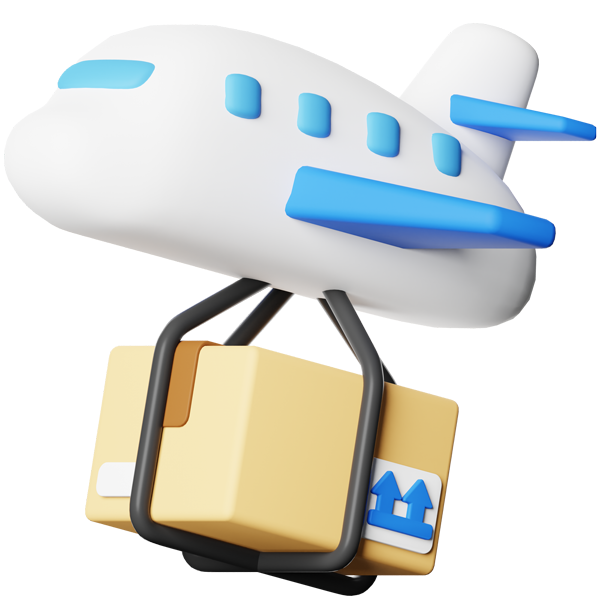

We are the best air cargo agent in UAE
- Long-term relationships with more than 30 airlines
- Delivery in 1–5 business days to your country
- Door to Door air freight from UAE to your country
- We offer competitive air freight costs from UAE

Why is air cargo service from Dubai so important?
Dubai has established itself as a major hub for air cargo services due to several factors, including:
Strategic Location
Dubai is located at the crossroads of Europe, Asia, and Africa, making it a convenient hub for cargo transport between these continents.
Modern Infrastructure
Dubai has invested heavily in its infrastructure, including the construction of several state-of-the-art airports and seaports. These facilities are equipped with the latest technology and provide efficient handling and storage of cargo.
Free Trade Zone
Dubai is home to several free trade zones, which provide tax-free and duty-free imports and exports. This makes Dubai an attractive destination for companies looking to import and export goods.
Strong Air Cargo Network
Dubai is served by several major airlines that operate both passenger and cargo flights. These airlines have established extensive networks that connect Dubai with destinations around the world.
Skilled Workforce
Dubai has a well-trained workforce that is skilled in handling and processing cargo. This ensures that goods are handled efficiently and reach their destination in a timely manner.
Overall, the combination of these factors has made Dubai a critical hub for air cargo services and an important gateway for international trade.

Why choose air cargo service for shipping from UAE?
There are several reasons why choosing air cargo service for shipping from the United Arab Emirates (UAE) is a good option:
- Speed: Air cargo is the fastest mode of transportation for shipping goods. This is especially important for time-sensitive shipments, such as perishable goods or products with a short shelf life.
- Reliability: Air cargo services are typically reliable, with a low rate of shipment loss or damage. Airlines have strict protocols in place to ensure that cargo is handled properly and transported securely.
- Global Reach: The UAE is a major hub for air cargo services, with connections to destinations all over the world. This provides companies with access to a wide network of destinations, making it easier to reach customers in far-off markets.
- Cost-Effective: While air cargo is generally more expensive than sea cargo, it can be more cost-effective for small and lightweight shipments. This is because air cargo is charged by weight, and the cost per kilogram decreases as the shipment size increases.
- Security: Air cargo is typically more secure than sea cargo. Airlines have strict security protocols in place, and air cargo is often transported in dedicated cargo planes, which reduces the risk of theft or loss.
- Tracking: Air cargo services provide real-time tracking of shipments, allowing companies to monitor their goods as they are transported. This provides peace of mind and helps ensure that shipments arrive at their destination on time.
Overall, air cargo services from the UAE provide a fast, reliable, and cost-effective way for companies to transport their goods around the world.
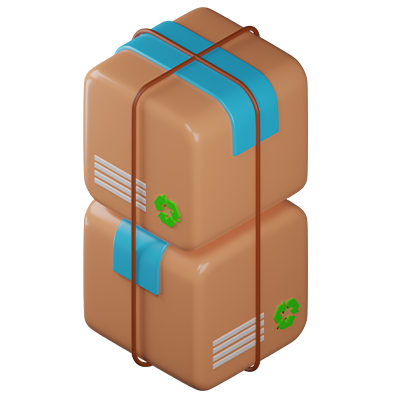
How to Make an Air Freight Order from UAE?
Making an air freight order from the UAE is a simple process. First, you’ll need to select a reputable and experienced air freight company that offers services from the UAE to your destination. You can research different companies online and compare prices, transit times, and other important factors to find the best option. Once you’ve selected a company, you’ll need to provide them with details about your shipment, including the type and weight of the goods, the origin and destination addresses, and any special requirements or preferences you may have.
The air freight company will then provide you with a quote and, if you agree to the terms, you can make a booking. You may also be required to provide documentation, such as a commercial invoice or bill of lading, to accompany your shipment. After booking, the air freight company will handle the transportation of your goods, including customs clearance, handling, and delivery to the final destination. With a reliable air freight provider, you can trust that your goods will arrive safely and on time.

What are the key benefits of using air freight?
Several key benefits of using air freight from the UAE to destinations worldwide exist. Firstly, air freight provides fast transit times, making it ideal for businesses and individuals who need to transport goods quickly, such as perishable goods or time-sensitive products. Secondly, air freight from the UAE is highly reliable, with real-time tracking and efficient handling procedures that help ensure that shipments arrive at their destination on time and in good condition.
The UAE is known for its high-quality airports, efficient customs procedures, and modern facilities, which provide a smooth and seamless experience for air freight shipments.Furthermore, air freight companies in the UAE offer a range of customizable services, including insurance, special handling requirements, and door-to-door delivery, allowing businesses and individuals to choose the best option for their specific needs. Finally, air freight from the UAE is cost-effective, with competitive pricing and a range of options available to meet the needs and budgets of businesses and individuals of all sizes.
These benefits make air freight from the UAE a popular choice for companies and individuals looking for fast, reliable, and cost-effective air cargo services.
Top 6 Air freight Advantages
These advantages make air freight from the UAE a popular choice for businesses and individuals looking for fast, reliable, and cost-effective air cargo services.
Fast transit times
Air freight from the UAE provides fast transit times, making it ideal for businesses and individuals who need to transport goods quickly.
Reliability
Air freight from the UAE is highly reliable, with real-time tracking and efficient handling procedures that help ensure that shipments arrive at their destination on time and in good condition.
Efficient airport and customs procedures
The UAE is known for its high-quality airports, efficient customs procedures, and modern facilities, which provide a smooth and seamless experience for air freight shipments
Customizable services
Air freight companies in the UAE offer a range of customizable services, including insurance, special handling requirements, and door-to-door delivery.
Cost-effectiveness
Air freight from the UAE is cost-effective, with competitive pricing and a range of options available to meet the needs and budget of businesses and individuals of all sizes
Wide range of destinations
With its central location, the UAE provides access to a wide range of destinations around the world, making it an ideal hub for air cargo operations.
Terms for Air Freight
These terms are important to understand when using air freight services from the UAE, as they play a crucial role in the transportation of goods and the fulfillment of obligations in international trade.
Air Waybill (AWB)
A document that serves as a receipt for the shipment of goods by air and acts as a contract between the shipper, carrier, and consignee.
Incoterms
International commercial terms that define the responsibilities and obligations of the buyer and seller in a global trade transaction
Door-to-door delivery
A service that includes the pickup of goods at the shipper's location, transportation by air, customs clearance, and delivery to the final destination
Customs clearance
The process of obtaining permission from a country's authorities to import or export goods through the payment of duties and taxes

Top 3 Most Important Airports in UAE
The United Arab Emirates is a rapidly growing hub for air traffic and commerce in the Middle East. With its strategic location and modern infrastructure, the country is home to several important airports that serve as key hubs for both domestic and international travel.
Out of the many airports in UAE, the top three most important ones are Dubai International Airport, Abu Dhabi International Airport, and Sharjah International Airport. These airports play a crucial role in supporting the growth of the country’s tourism and trade industries and are known for their state-of-the-art facilities, efficient operations, and world-class services.

Dubai International Airport (DXB)
Dubai International Airport is the largest and busiest airport in the United Arab Emirates and one of the busiest in the world. It is a major hub for Emirates, the country's flag carrier airline, as well as several other international airlines, making it an important gateway for travelers coming to and leaving the UAE. The airport's strategic location, modern infrastructure, and world-class facilities make it an ideal hub for air freight services, connecting the UAE with the rest of the world.
Dubai International Airport offers a range of air freight services, including cargo handling, storage, and transportation. These services are designed to meet the needs of businesses of all sizes, from small traders to large multinational corporations. With its efficient operations and advanced technology, the airport can handle large volumes of air freight, ensuring that goods are transported quickly and safely to their destinations. The air freight services offered by Dubai International Airport are crucial for supporting the growth of the UAE's trade and commerce industries, connecting the country with the rest of the world and enabling it to participate in global trade networks.

Sharjah International Airport (SHJ)
Sharjah International Airport is a major airport located in the emirate of Sharjah, United Arab Emirates. It is an important hub for air cargo operations in the region, offering a range of air freight services to destinations around the world.
One of the reasons why Sharjah International Airport is important in UAE is its location. The airport is conveniently located just a short distance from Dubai, one of the world's busiest commercial centers, and is well-connected to major highways, making it an ideal hub for air cargo operations. In addition, the airport offers modern facilities and state-of-the-art technology, ensuring efficient and reliable air freight services.
The air freight services offered by Sharjah International Airport connect the UAE with destinations around the world, including Asia, Europe, Africa, and the Americas. The airport offers a range of services, including cargo handling, storage, and transportation, ensuring that goods are transported quickly and safely to their destinations. With its efficient operations and advanced technology, Sharjah International Airport is a key player in supporting the growth of the UAE's trade and commerce industries, enabling the country to participate in global trade networks and connect with the rest of the world.

Abu Dhabi International Airport (AUH)
Abu Dhabi International Airport is one of the largest and most important airports in the United Arab Emirates. It is located in the capital city of Abu Dhabi and serves as a major hub for both passenger and cargo operations in the region.
Abu Dhabi International Airport is important in the UAE for several reasons. Firstly, its location in the capital city of Abu Dhabi makes it a major gateway for travelers coming to and leaving the country. Secondly, the airport is home to a modern and well-equipped infrastructure, including state-of-the-art facilities and advanced technology, ensuring efficient and reliable air services.
The air freight services offered by Abu Dhabi International Airport connect the UAE with destinations around the world, including Europe, Asia, Africa, and the Americas. The airport offers a range of services, including cargo handling, storage, and transportation, ensuring that goods are transported quickly and safely to their destinations. With its efficient operations and advanced technology, Abu Dhabi International Airport is a crucial player in supporting the growth of the UAE's trade and commerce industries, enabling the country to participate in global trade networks and connect with the rest of the world.
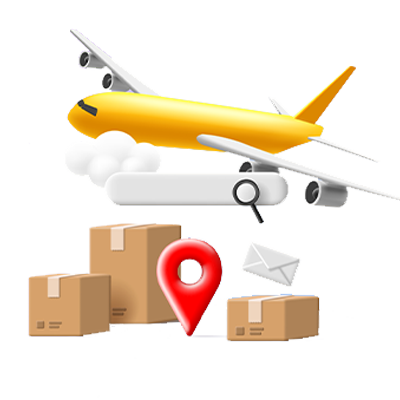
Top 5 cargo airlines in UAE
The United Arab Emirates is a major hub for air cargo in the Middle East, with many of the world’s largest cargo airlines operating out of its airports. These airlines play a crucial role in the global supply chain, transporting goods and products to destinations worldwide. With the growth of e-commerce and online retail, the demand for air cargo services has risen dramatically in recent years, making it more important than ever to have a clear understanding of the top players in this industry.
In this article, we will be focusing on the top 5 cargo airlines in the UAE based on the weight of the shipment, quality of service, and the number of flights. These airlines have been chosen for their ability to handle large shipments, their reputation for high-quality service, and their extensive network of destinations. Whether you’re a business looking to move goods around the world or a consumer looking for fast and reliable shipping options, this list of the top 5 cargo airlines in the UAE will give you a good idea of the best options available.

Emirates SkyCargo
Emirates SkyCargo is the largest cargo airline in the UAE and one of the largest in the world. It operates a large fleet of wide-body aircraft, including the Airbus A380 and Boeing 777, making it capable of carrying large amounts of cargo. The airline has a reputation for high-quality service and an extensive network of destinations, making it a top choice for many businesses.

Etihad Airways
Etihad Airways is the second largest airline in the UAE and operates a significant cargo division. The airline operates a fleet of wide-body aircraft, including the Boeing 777 and Airbus A330, and has a reputation for high-quality service and a strong network of destinations.

flydubai Cargo
flydubai Cargo is a division of the budget airline flydubai and operates a fleet of Boeing 737 aircraft. The airline specializes in the transportation of smaller cargo shipments and has a reputation for reliable service and competitive pricing.

Qatari Airways Cargo
Qatari Airways Cargo is the cargo division of Qatari Airways and operates a fleet of Boeing 747 and 777 aircraft. The airline has a strong network of destinations and a reputation for high-quality service, making it a popular choice for many businesses.

Air Arabia Cargo
Air Arabia is a low-cost airline based in the UAE and operates a cargo division under the name Air Arabia Cargo. The airline operates a fleet of Airbus A320 aircraft and has a reputation for reliable service and competitive pricing.

Incoterms for Air Cargo Services
Incoterms (International Commercial Terms) are standard trade terms widely used in international trade transactions. Incoterms define the responsibilities of buyers and sellers with respect to the delivery of goods and the transfer of risk. They help to minimize confusion and misunderstandings between buyers and sellers by clearly defining the responsibilities of each party in the transaction.
In the context of air cargo services from the UAE, Incoterms play a crucial role in determining the responsibilities of the buyer and seller with respect to the delivery of goods. For example, the Incoterm “EXW” (Ex Works) means that the seller is responsible for making the goods available at their premises, while the buyer is responsible for all costs and risks involved in moving the goods from the seller’s premises to the final destination. On the other hand, the Incoterm “DDP” (Delivered Duty Paid) means that the seller is responsible for delivering the goods to the buyer, including all costs and risks involved in moving the goods to the final destination.
By clearly defining the responsibilities of each party, Incoterms help to reduce the risk of misunderstandings and disputes in international trade transactions. This is particularly important in the context of air cargo services, where goods are often being transported over long distances and through multiple countries, making the coordination and management of shipments a complex and time-sensitive process. By using Incoterms, businesses can have confidence that their shipments will be delivered on time and in accordance with the agreed terms, helping to ensure the success of their international trade transactions.
Terms for Air Freight
These terms are important to understand when using air freight services from the UAE, as they play a crucial role in the transportation of goods and the fulfillment of obligations in international trade.
CPT (Carriage Paid To)
CPT stands for Carriage Paid To, which is a trade term used in international trade. It specifies the responsibilities and obligations of the seller and the buyer in the delivery of goods. In the context of air cargo services from the UAE, the term CPT is used to define the delivery of goods from the seller to the buyer, with the seller paying for the cost of transportation.
Under CPT terms, the seller is responsible for delivering the goods to the carrier at the seller's premises or another agreed-upon location, such as a port or airport. The seller must ensure that the goods are packaged and loaded onto the carrier's aircraft, ready for transport to the buyer's destination. The seller is also responsible for paying the cost of transportation from the place of delivery to the buyer's destination, including any related costs such as customs clearance and import duties.
The buyer is responsible for arranging and accepting delivery of the goods at the airport of destination and any other related costs, such as unloading and storage.
CPT is often used in air cargo services because it places the responsibility for the cost of transportation on the seller, which can be more convenient for the buyer. However, the seller must ensure that the goods are properly packaged and loaded onto the carrier's aircraft and that all necessary transport documentation is in order, as the buyer may reject the goods if they are damaged during transportation.
FCA (Free Carrier)
FCA stands for Free Carrier, which is a trade term used in international trade. It specifies the responsibilities and obligations of the seller and the buyer in the delivery of goods. In the context of air cargo services from the UAE, the term FCA is used to define the delivery of goods from the seller to the carrier, who will then transport the goods to the buyer.
Under FCA terms, the seller is responsible for delivering the goods to the carrier's designated location or airport, either at the seller's premises or another named place, such as a port or airport. The seller must ensure that the goods are packaged and loaded onto the carrier's aircraft, ready for transport to the buyer's destination.
The buyer, on the other hand, is responsible for arranging and paying for the transportation of the goods from the airport of departure to the airport of destination, as well as any other related costs, such as customs clearance and import duties.
FCA is often used in air cargo services because it allows both the seller and the buyer to clearly define their respective responsibilities and obligations, which helps to reduce the risk of disputes and misunderstandings during the delivery process.
EXW Ex Works
EXW (Ex Works) is an Incoterm that defines the responsibilities of the buyer and seller in an international trade transaction. According to the EXW terms, the seller is responsible for making the goods available at their premises, while the buyer is responsible for all costs and risks involved in moving the goods from the seller's premises to the final destination.
In the context of air cargo services from the UAE, EXW can be used when the buyer wants to take on the responsibility for arranging and paying for the transportation of the goods. For example, a buyer may choose to use EXW when they have a preferred shipping or logistics partner, or when they want to take advantage of lower shipping rates by consolidating multiple shipments.
Using EXW for air cargo services from the UAE requires the buyer to arrange and pay for the transportation of the goods from the seller's premises to the final destination. This may include the cost of loading the goods onto the aircraft, as well as any customs clearance fees or duties. It is important to note that the risk of loss or damage to the goods is also transferred from the seller to the buyer under the EXW terms, so it is important for the buyer to have adequate insurance in place to protect their investment.
In summary, EXW can be a useful Incoterm for air cargo services from the UAE when the buyer wants to take on the responsibility for arranging and paying for the transportation of the goods. However, it is important for the buyer to carefully consider their logistics and insurance needs before choosing this option.
DPU (Delivered At Place Unloaded)
DPU stands for Delivered at Place Unloaded, which is a trade term used in international trade. It specifies the responsibilities and obligations of the seller and the buyer in the delivery of goods. In the context of air cargo services from the UAE, the term DPU is used to define the delivery of goods from the seller to the buyer, with the buyer responsible for all costs associated with the delivery, including unloading the goods from the carrier's aircraft.
Under DPU terms, the seller is responsible for delivering the goods to the carrier's aircraft at the airport of departure, ensuring that the goods are properly packaged and loaded onto the aircraft. The seller must also provide all necessary transport documentation, such as bills of lading, air waybills, and any other relevant documentation.
The buyer is responsible for all costs associated with the delivery of the goods, including transportation, customs clearance, import duties, and unloading the goods from the carrier's aircraft at the airport of destination. The buyer must also arrange and accept delivery of the goods at the airport of destination.
DPU is often used in air cargo services when the buyer wants complete control over the delivery of the goods and is willing to bear the costs associated with that control. This trade term is also used when the delivery destination is remote or difficult to access, as the buyer is responsible for ensuring that the goods are unloaded from the carrier's aircraft and transported to the final destination.
DDP (Delivered Duty Paid)
DDP stands for Delivered Duty Paid, a trade term used in international trade. It specifies the responsibilities and obligations of the seller and the buyer in the delivery of goods. In the context of air cargo services from the UAE, the term DDP is used to define the delivery of goods from the seller to the buyer, with the seller responsible for all costs associated with the delivery, including customs clearance and import duties.
Under DDP terms, the seller is responsible for delivering the goods to the buyer, including all costs associated with the delivery, such as transportation, customs clearance, and import duties. The seller must also ensure that the goods are properly packaged and loaded onto the carrier's aircraft and that all necessary transport documentation, such as bills of lading, air waybills, and any other relevant documentation, is in order.
The buyer is responsible for accepting delivery of the goods at the airport of destination and for arranging any necessary storage or further transportation.
DDP is often used in air cargo services when the buyer wants a complete door-to-door delivery service and wants to avoid the hassle and complexity of dealing with customs clearance and import duties. The trade term is also useful when the delivery destination is in a country where customs procedures and regulations are complex, as the seller is responsible for ensuring that the goods are cleared through customs and delivered to the buyer without any issues.

How to calculate Air cargo Cost from UAE?
Calculating the cost of air cargo from the UAE involves several factors, including the weight and volume of the goods being shipped, the distance between the departure and destination airports, and any additional services required, such as customs clearance, handling, and storage.
To calculate the air cargo cost, it is necessary to first determine the weight and volume of the goods, as air freight charges are typically based on either the weight or volume of the shipment, whichever is greater. The weight and volume of the goods are then used to determine the size and type of aircraft needed for the shipment, as well as the amount of space required in the aircraft.
Once the weight and volume of the goods have been determined, the distance between the departure and destination airports must be taken into account. Longer distances typically result in higher air cargo costs, as more fuel is needed to transport the goods.
In addition to the weight and distance, the cost of air cargo from the UAE may also be affected by the type of services required, such as customs clearance, handling, and storage. These services can add significant costs to the air cargo shipment and must be factored into the overall cost calculation.

What is actual weight?
Actual weight is the measurement of the physical weight of a piece of cargo, including packaging and handling materials. It is a crucial factor in determining the cost of air cargo from the United Arab Emirates (UAE) as it directly affects the weight of the aircraft and the fuel consumption required for transportation. Airlines typically charge for air cargo based on either the actual weight or volumetric weight, whichever is greater.
The importance of accurately measuring actual weight in air cargo from the UAE cannot be overstated. Inaccurate measurements can result in incorrect charging and overpayment for the shipment. It can also lead to issues with aircraft weight distribution, affecting the safety of the flight. Moreover, if the actual weight exceeds the allowed weight limit for a particular aircraft, the shipment may be denied and rescheduled, causing delays and additional costs. To avoid these problems, it is important to accurately measure and declare the actual weight of the cargo before shipment.

What is Volumetric weight?
Volumetric weight is a calculation of the cargo’s density used by airlines to determine the space it will take up on an aircraft. It is calculated by multiplying the length, width, and height of a package and dividing by a standard conversion factor. Volumetric weight is important for air cargo from the UAE because airlines charge for air cargo based on the amount of space it takes up on the aircraft, not just its actual weight. This means that even if a package is lightweight if it takes up a large amount of space, it will be charged based on its volumetric weight.
The calculation of volumetric weight is crucial for determining the cost of air cargo from the UAE, as airlines typically charge based on the greater of the actual weight or volumetric weight. Inaccurate calculations can result in incorrect charging, leading to overpayment for the shipment. It can also lead to issues with aircraft weight distribution, affecting the safety of the flight. To avoid these problems, it is important to accurately measure and calculate the volumetric weight of the cargo before shipment. Accurate volumetric weight calculations ensure that the correct charge is applied and that the cargo is transported safely and efficiently.
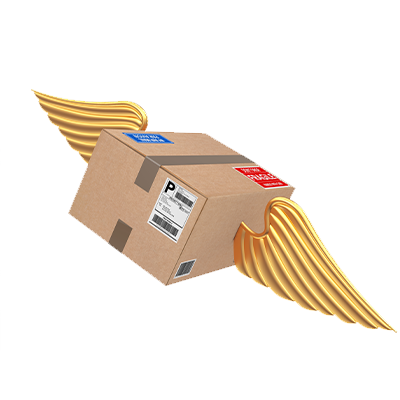
What is chargeable weight ?
Chargeable weight in air cargo service from the United Arab Emirates (UAE) refers to the weight used by airlines to determine the cost of shipping. It is either the actual weight of the cargo, including packaging and handling materials or the volumetric weight, whichever is greater.
Volumetric weight is calculated by multiplying the length, width, and height of the package and dividing by a standard conversion factor. This calculation takes into account the amount of space the cargo will occupy on an aircraft.
The chargeable weight is a critical factor in determining the cost of air cargo service from the UAE, as airlines typically charge based on this weight. It is important to accurately measure and calculate the chargeable weight to avoid overpayment for the shipment.
Only accurate measurements can result in correct charges, leading to additional costs and potential disputes with the airline. To ensure accurate charges and avoid any issues, it is recommended to accurately measure and calculate the chargeable weight of the cargo before shipment. This helps ensure a smooth and cost-effective shipping process.

General cargo VS special cargo
General cargo and special cargo are the two main categories of air cargo.
General cargo refers to the standard and regular types of goods that are transported by air, such as household goods, commercial goods, and personal items. This type of cargo is typically packaged and prepared for shipment in a standard manner and does not require any special handling or storage.
Special cargo refers to goods that require special handling and storage due to their nature, size, weight, or value. This category of air cargo includes items such as dangerous goods, valuable goods, live animals, and perishable goods. These items require specialized packaging, handling, and storage procedures, and may also require special documentation and certifications.
Examples of special cargo include:
- Hazardous materials (e.g. chemicals, flammable liquids)
- Live animals (e.g. horses, dogs)
- Perishable goods (e.g. fresh flowers, fruits and vegetables)
- Valuable goods (e.g. gold, diamonds)
- Fragile goods (e.g. glass items, artwork)
- Oversized cargo (e.g. machinery, vehicles)
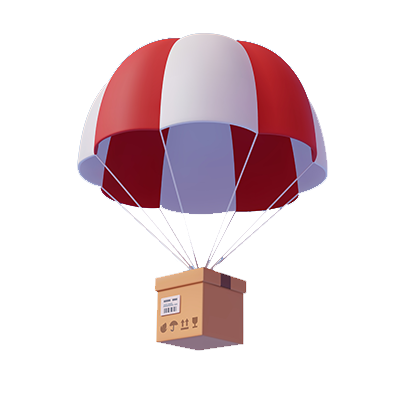
Should I book my air shipment myself, or will my shipper do it?
Whether you should book your air shipment yourself or have your shipper do it depends on your specific needs and preferences. Here are some factors to consider:
- Knowledge and experience: If you have prior experience with air cargo shipment and a good understanding of the process and regulations, you may choose to book your shipment yourself. On the other hand, if you lack experience, it may be wise to have your shipper handle the booking process for you.
- Time and resources: If you are short on time and resources, it may be more convenient to have your shipper handle the booking process. Your shipper has the experience and expertise to handle the logistics of the shipment and can take care of the paperwork and regulations.
- Cost: Booking your shipment yourself may save you money if you are able to secure better rates than your shipper. On the other hand, if your shipper has established relationships with airlines and can secure favorable rates, it may be more cost-effective to have them handle the booking process.
Ultimately, the decision to book your shipment yourself or have your shipper handle it depends on your specific needs and preferences. Consider your experience, time and resources, and cost when making your decision.

Air cargo vs. Sea cargo
Air cargo and sea cargo are both modes of transportation for shipping goods from the United Arab Emirates (UAE). Each mode of transportation has its own advantages and disadvantages, and the choice between air and sea cargo depends on a variety of factors.
Advantages of air cargo
- Faster transit times: Air cargo is generally faster than sea cargo, making it a good option for shipping time-sensitive goods.
- Direct flights: Many destinations have direct flights from the UAE, reducing transit times and the risk of lost or damaged cargo.
- Real-time tracking: Air cargo can be tracked in real-time, providing greater visibility and security for the shipment.
Advantages of sea cargo
- Lower cost: Sea cargo is typically less expensive than air cargo due to the lower cost of shipping containers and lower fuel costs.
- Larger shipments: Sea cargo can accommodate larger shipments than air cargo, making it a good option for shipping large volumes of goods.
- Better for heavy and bulky items: Sea cargo is well-suited for shipping heavy and bulky items, which may not be economically feasible to transport by air.
The choice between air and sea cargo depends on factors such as transit time, cost, and the type of goods being shipped. By considering the advantages and disadvantages of each mode of transportation, you can choose the best option for your shipment.

Can I get insurance for my air freight shipment from UAE?
Yes, you can get insurance for your air freight shipment from the UAE. Insurance for air freight shipments is designed to protect your goods against loss or damage during transit. The cost of insurance is usually based on the value of the goods being shipped and the type of insurance coverage desired.
There are two main types of air freight insurance: all-risk coverage and named-perils coverage. All-risk coverage provides comprehensive protection for your goods, while named-perils coverage only covers specific risks such as theft, fire, or damage during transit.
It is important to note that while air freight insurance can provide protection for your shipment, it may not cover all risks. Some risks, such as war and acts of terrorism, may be excluded from coverage. It is also important to review the terms and conditions of the insurance policy carefully to ensure that you understand what is covered and what is not.
By obtaining insurance for your air freight shipment from the UAE, you can protect your goods and reduce the financial risk of loss or damage during transit.

Air freight restrictions from UAE
The United Arab Emirates (UAE) has restrictions on the types of products that can be shipped by air freight. Some of the most common restrictions include:
| Restricted Item Category | Description | Extended Information |
|---|---|---|
| Hazardous materials | Chemicals, flammable liquids, and batteries are prohibited due to safety concerns. | Ensure proper disposal or alternative shipping methods for hazardous materials to comply with regulations. |
| Illegal items | Drugs, firearms, and counterfeit goods are prohibited from being shipped by air freight. | Verify the legality of items in both origin and destination countries to avoid penalties and shipment delays. |
| Perishable items | Food and live animals may have special restrictions, including special packaging and certification requirements. | Research proper packaging, temperature control, and certification requirements to ensure perishable items arrive in good condition. |
| Livestock | Specific restrictions on shipment, including quarantine requirements and restrictions on types of livestock that can be shipped. | Confirm livestock shipping regulations and follow appropriate quarantine and certification procedures. |
| Endangered species | Products made from endangered species, such as ivory and fur products, may have restrictions on shipment by air freight. | Acquire necessary permits and ensure compliance with international endangered species regulations. |
| Human remains | Shipping human remains may have specific restrictions, including the need for proper documentation and certifications. | Coordinate with relevant authorities and follow strict guidelines for documentation and certification when shipping human remains. |
Work with a reputable air freight service provider to ensure compliance with all restrictions and regulations for air freight shipments from the UAE. This will help prevent shipment
By being aware of these restrictions, you can ensure that your air freight shipment from the UAE is compliant and meets all necessary regulations. It is important to work with a reputable air freight service provider to ensure that all requirements are met.

What Are Common Air Freight Costs for Shipping from UAE?
Air freight costs for shipping from the UAE can vary depending on several factors such as the size and weight of the shipment, the destination, and the shipping method. Some common air freight costs for shipping from the UAE include:
| Factor | Description | Extended Information |
|---|---|---|
| Airline charges | Cost of transporting goods from the UAE to the destination, based on weight and volume of the shipment. | Different airlines may have varying pricing structures. Compare options to find the best fit for your needs. |
| Terminal handling charges | Cost of loading and unloading the goods at the airport, usually paid by the shipper. | These charges may vary by airport or service provider. Be aware of potential variations when planning shipments. |
| Fuel surcharges | Cost of fuel used during the flight, varying depending on fuel prices. | Monitor fuel price fluctuations to estimate potential surcharge changes and manage overall shipping costs. |
| Security charges | Cost of security measures required for air freight shipments, including screening and inspections. | Ensure your shipment complies with security regulations to avoid delays or additional costs. |
| Customs fees | Cost of clearing the goods through customs, based on the value of the shipment. | Familiarize yourself with customs regulations in the destination country to avoid unexpected fees or delays. |
| Insurance | Cost of insuring the goods during transit, optional but highly recommended. | Consider insurance options to protect your shipment against damage, loss, or theft during transit. |
It’s important to keep in mind that these costs can vary depending on the shipping method and the specific needs of the shipment. To get an accurate estimate of the air freight costs for shipping from the UAE, it’s best to consult with a freight forwarder or shipping company.

Air freight Costs & charges from UAE
The cost of air freight from the UAE can vary depending on several factors, including the size and weight of the shipment, the destination, and the shipping method. For example, air freight from Dubai to Europe can be more expensive than air freight from Dubai to Asia due to differences in distance and demand. To get an accurate estimate of the air freight costs from the UAE, it’s important to consider all the relevant charges, including airline charges, terminal handling charges, fuel surcharges, security charges, and customs fees.
When shipping from the UAE, it’s also important to consider the location of the origin and destination cities. For example, shipping from Abu Dhabi to New York may be more expensive than shipping from Dubai to New York due to differences in the cost of terminal handling, fuel surcharges, and other fees. To find the best air freight solution for your needs, it’s important to work with a reputable freight forwarder or shipping company that can provide detailed information about the costs and charges involved. They can also help you navigate the complex regulations and requirements of international shipping, ensuring that your shipment arrives at its destination safely and on time.
Please note that the following table provides only estimated air freight costs, which can vary depending on various factors such as the size and weight of the shipment, shipping method, and current market conditions. Always consult with a freight forwarder or shipping company for accurate costs.
Table 1
| Destination Country | Airport Name | Airport Code | Estimated Price (USD) |
|---|---|---|---|
| United States | John F. Kennedy International Airport | JFK | 3.4 – 5 USD per KG |
| United Kingdom | London Heathrow Airport | LHR | 5 – 8 USD per KG |
| Canada | Toronto Pearson International Airport | YYZ | 3.1 – 6.5 USD per KG |
| Australia | Sydney Kingsford Smith International Airport | SYD | 3.4 – 5 USD per KG |
| China | Beijing Capital International Airport | PEK | 4,4 – 7 USD per KG |
| Japan | Tokyo Narita International Airport | NRT | 6.5 – 8.5 USD per KG |
| Germany | Frankfurt am Main Airport | FRA | 3,4 – 8 USD per KG |
| France | Charles de Gaulle Airport | CDG | 3,4 – 7 USD per KG |
| India | Indira Gandhi International Airport | DEL | 3,4 – 5 USD per KG |
| Brazil | São Paulo/Guarulhos International Airport | GRU | 6.5 – 8.5 USD per KG |
| South Africa | O.R. Tambo International Airport | JNB | 3,4 – 7 USD per KG |
Table 2
| Destination Country | Airport Name | Airport Code | Estimated Price (USD) |
|---|---|---|---|
| Italy | Leonardo da Vinci–Fiumicino Airport | FCO | 3 – 7 USD per KG |
| Spain | Adolfo Suárez Madrid–Barajas Airport | MAD | 5 – 6.5 USD per KG |
| Mexico | Mexico City International Airport | MEX | 4.5 – 6.5 USD per KG |
| South Korea | Incheon International Airport | ICN | 4.5 – 6.5 USD per KG |
| Indonesia | Soekarno-Hatta International Airport | CGK | 5 – 9 USD per KG |
| Turkey | Istanbul Atatürk Airport | IST | 2.5 – 5.5 USD per KG |
| Netherlands | Amsterdam Airport Schiphol | AMS | 3.1 – 6.5 USD per KG |
| Switzerland | Zurich Airport | ZRH | 4 -8 USD per KG |
| Argentina | Ministro Pistarini International Airport | EZE | 3.1 – 6.5 USD per KG |
| Thailand | Suvarnabhumi Airport | BKK | 4.5 – 6.5 USD per KG |
| Belgium | Brussels Airport | BRU | 3.1 – 6.5 USD per KG |
| New Zealand | Auckland Airport | AKL | 5 – 7.5 USD per KG |
| Sweden | Stockholm Arlanda Airport | ARN | 4.5 – 6.5 USD per KG |

Transit time for air freight from UAE
The transit time for air freight from the UAE can vary depending on several factors, including the origin and destination cities, the shipping method, and any customs clearance requirements. On average, transit times for air freight from the UAE to major cities in Europe and Asia can range from 3 to 7 days. For example, air freight from Dubai to London typically takes around 3 to 5 days, while air freight from Abu Dhabi to Tokyo can take up to 7 days.
It’s important to keep in mind that transit times for air freight from the UAE can be impacted by factors such as flight schedules, customs clearance times, and weather conditions. To ensure that your shipment arrives at its destination on time, it’s important to work with a reliable freight forwarder or shipping company who can provide detailed information about transit times and help you manage any potential delays. They can also help you coordinate the shipment and provide real-time tracking information so that you can stay up-to-date on the status of your shipment. With the right support and planning, air freight from the UAE can be a cost-effective and efficient solution for shipping your goods to any destination around the world.
Here is an estimated list of air cargo transit time from Dubai to ten cities around the world:
Table 1
| Destination Country | Airport Name | Airport Code | Estimated Transit Time (Business Days) |
|---|---|---|---|
| Italy | Leonardo da Vinci–Fiumicino Airport | FCO | 3-5 |
| Spain | Adolfo Suárez Madrid–Barajas Airport | MAD | 3-5 |
| Mexico | Mexico City International Airport | MEX | 4-7 |
| South Korea | Incheon International Airport | ICN | 4-6 |
| Indonesia | Soekarno-Hatta International Airport | CGK | 4-6 |
| Turkey | Istanbul Atatürk Airport | IST | 2-4 |
| Netherlands | Amsterdam Airport Schiphol | AMS | 3-5 |
| Switzerland | Zurich Airport | ZRH | 3-5 |
| Argentina | Ministro Pistarini International Airport | EZE | 5-8 |
| Thailand | Suvarnabhumi Airport | BKK | 3-5 |
Table 2
| Destination Country | Airport Name | Airport Code | Estimated Transit Time (Business Days) |
|---|---|---|---|
| Malaysia | Kuala Lumpur International Airport | KUL | 4-6 |
| Chile | Arturo Merino Benítez International Airport | SCL | 5-8 |
| Denmark | Copenhagen Airport | CPH | 3-5 |
| Poland | Warsaw Chopin Airport | WAW | 3-5 |
| Norway | Oslo Airport | OSL | 4-6 |
| Finland | Helsinki Airport | HEL | 3-5 |
| Israel | Ben Gurion Airport | TLV | 3-5 |
| Philippines | Ninoy Aquino International Airport | MNL | 4-6 |
| Vietnam | Tan Son Nhat International Airport | SGN | 4-6 |
| Portugal | Lisbon Airport | LIS | 3-5 |
| Greece | Athens International Airport | ATH | 3-5 |
Please note that the transit times provided in the following table are estimates based on typical air freight services. Actual transit times may vary depending on factors such as the shipping method, carrier, and current market conditions. Always consult with a freight forwarder or shipping company for accurate transit times.
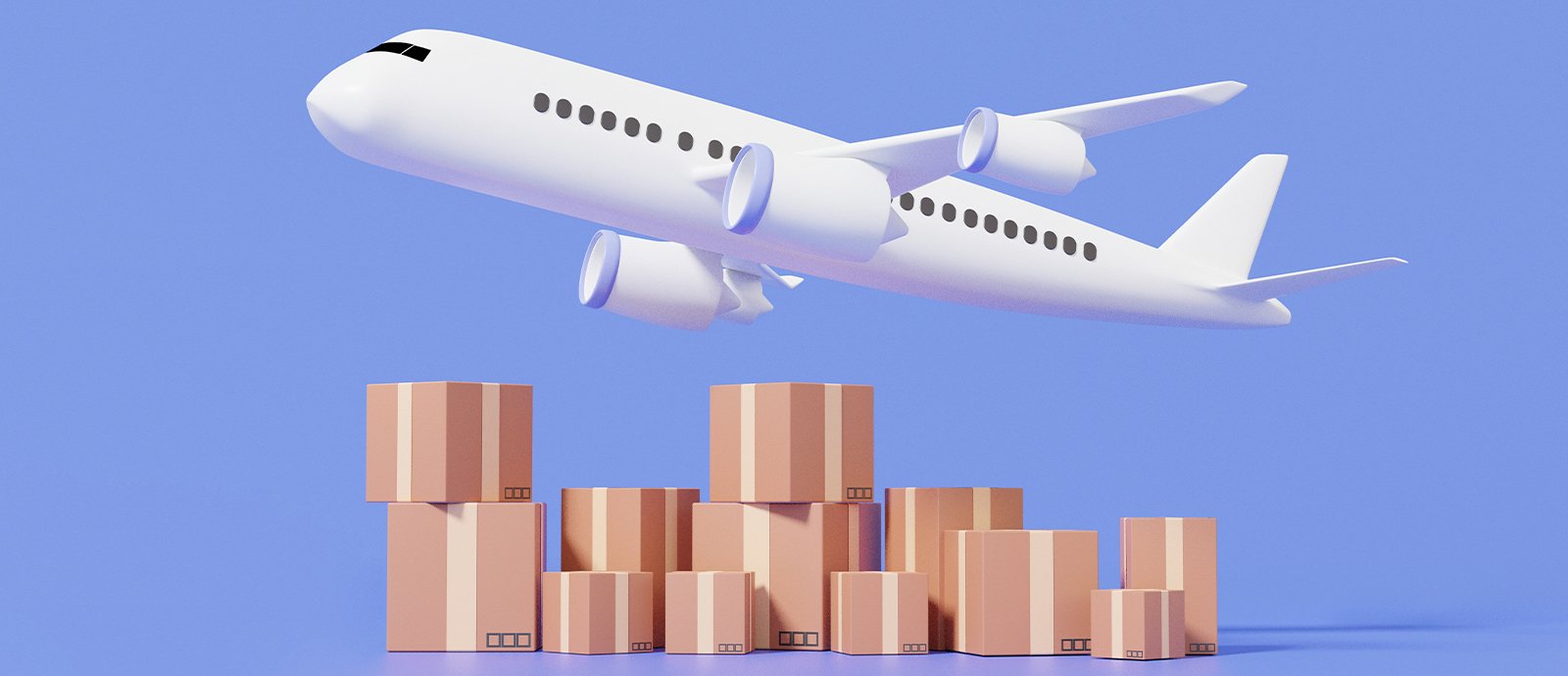
Conclusion
In conclusion, DXBFLY Shipping Company, based in the United Arab Emirates, is committed to providing reliable and efficient air freight services to a wide range of destinations worldwide. We understand that various factors, such as the size and weight of the shipment, destination, and shipping method, can influence air freight costs and transit times. Our knowledgeable team works diligently to ensure that all shipments are compliant with international regulations, restrictions, and customs procedures.
With our vast network and expertise in air freight, DXBFLY Shipping Company can facilitate shipments to countries such as Italy, Spain, Mexico, South Korea, Indonesia, Turkey, Netherlands, Switzerland, Argentina, Thailand, and many more. Our goal is to offer competitive pricing and transit times, allowing our clients to make informed decisions regarding their shipping needs.
At DXBFLY, we prioritize customer satisfaction and work closely with our clients to address their specific requirements. We encourage potential customers to consult with our team of professionals for accurate cost estimates and transit times. Let DXBFLY be your partner in delivering your goods safely and efficiently to destinations worldwide.
Frequently asked questions
Factors include the size and weight of the shipment, destination, and shipping method
Consult with a freight forwarder or shipping company, like DXBFLY, for accurate cost estimates.
Yes, common restrictions include hazardous materials, illegal items, perishable items, livestock, endangered species, and human remains.
Transit times vary depending on the destination and shipping method. Consult with a shipping company for accurate transit times.
Can I ship perishable items like food and live animals by air freight?
Yes, but there may be special restrictions, including the need for special packaging and certification.
Our knowledgeable team works diligently to ensure shipments are compliant with all relevant regulations, restrictions, and customs procedures.
Work with a reputable air freight service provider, like DXBFLY, to ensure that all requirements are met.
Yes, customs fees are based on the value of the shipment and can vary by destination country.
DXBFLY has a vast network and can facilitate shipments to a wide range of destinations worldwide. Contact us for more information on specific destinations.
Costs vary depending on several factors. Consult with a freight forwarder or shipping company for accurate cost estimates.
looking for best air freight cost from UAE?

